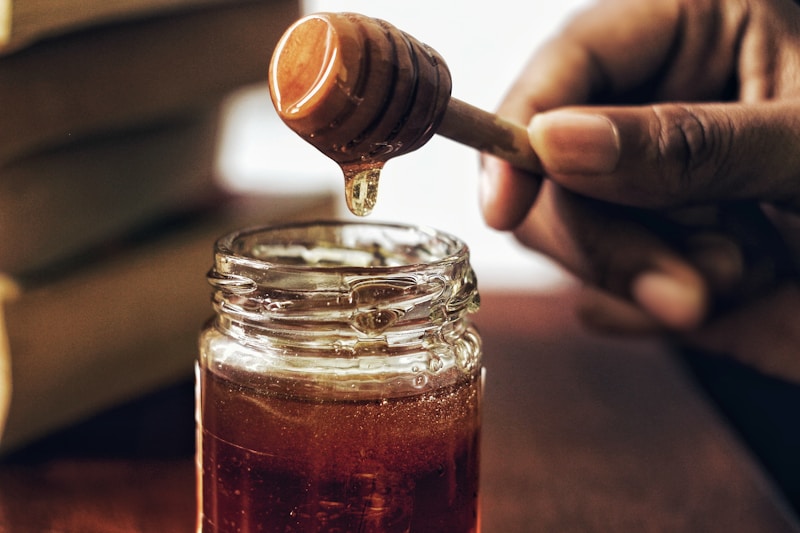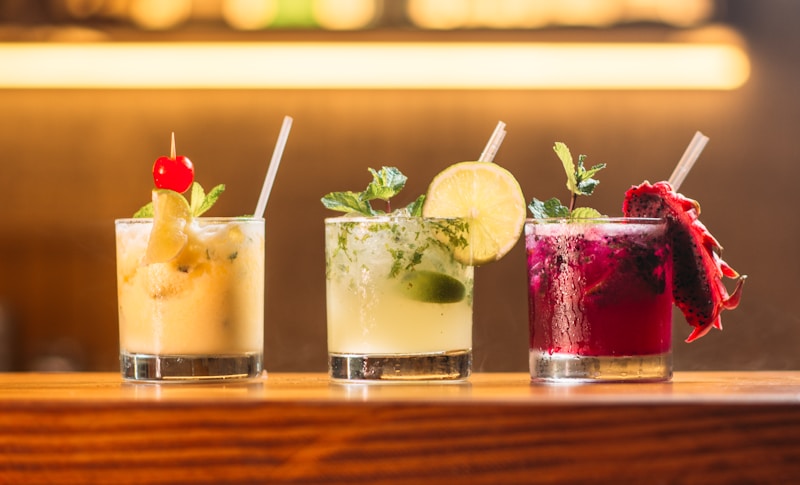This guide covers evidence based hangover prevention strategies that work with your diet goals. You will learn why certain drinks cause worse hangovers, which low calorie options are gentlest on your body, and how to minimize damage when you do indulge.
What Actually Causes Hangovers

Hangovers result from multiple factors working together. Understanding each helps you develop effective prevention strategies.
Dehydration
Alcohol is a diuretic, meaning it makes you urinate more than the liquid you consume. For every standard drink, you lose about 160ml more fluid than you take in. This dehydration causes headaches, fatigue, and thirst.
Acetaldehyde Toxicity
Your liver metabolizes alcohol into acetaldehyde, a toxic compound that is 10 to 30 times more toxic than alcohol itself. Acetaldehyde buildup causes nausea, sweating, and rapid heartbeat. Your body eventually converts acetaldehyde to harmless acetate, but this takes time.
Congeners
Congeners are byproducts of fermentation that give alcoholic beverages their distinctive flavors. Darker spirits like bourbon and red wine have more congeners than clear spirits like vodka. Higher congener content correlates with worse hangovers.
Inflammation
Alcohol triggers inflammatory responses throughout the body. This systemic inflammation contributes to the general malaise, muscle aches, and brain fog associated with hangovers.
Disrupted Sleep
Alcohol helps you fall asleep but ruins sleep quality. It suppresses REM sleep and causes more awakenings in the second half of the night. Even if you sleep eight hours after drinking, you wake feeling unrested.
Blood Sugar Fluctuations
Alcohol interferes with glucose production and can cause blood sugar to drop during the night. Low blood sugar contributes to fatigue, weakness, and mood disturbances.
The Best Low Calorie Drinks for Minimal Hangovers

Some low calorie drinks are significantly gentler on your body than others. Here are the best options ranked:
Tier 1: Lowest Hangover Risk
| Drink | Calories | Why It’s Better |
|---|---|---|
| Vodka Soda | 97 | Lowest congeners, hydrating mixer |
| Gin and Diet Tonic | 97 | Low congeners, moderate complexity |
| White Wine Spritzer | 80 to 100 | Diluted alcohol, lower ABV |
| Light Beer | 95 to 100 | Lower alcohol, some hydration |
Tier 2: Moderate Hangover Risk
| Drink | Calories | Consideration |
|---|---|---|
| Tequila with Soda | 97 | More congeners than vodka |
| Dry White Wine | 120 | Moderate congeners, higher alcohol |
| Hard Seltzer | 100 | Low congeners, easy to over consume |
| Champagne/Prosecco | 95 | Carbonation increases absorption |
Tier 3: Higher Hangover Risk
| Drink | Calories | Concern |
|---|---|---|
| Whiskey Neat | 97 | High congeners from aging |
| Dry Red Wine | 125 | High congeners, histamines, tannins |
| Dark Rum and Diet | 97 | Higher congeners than light rum |
| Bourbon | 97 | Very high congener content |
Evidence Based Prevention Strategies
Strategy 1: Hydration Protocol
Dehydration is addressable. Follow this protocol:
- Before drinking: Drink 16 oz of water
- During drinking: Alternate alcoholic drinks with water (one for one)
- Before bed: Drink 16 to 24 oz of water
- Morning after: Continue aggressive hydration
This protocol alone can dramatically reduce hangover severity. It also naturally slows your drinking pace.
Strategy 2: Electrolyte Support
Water alone does not fully address alcohol related dehydration because you also lose electrolytes. Consider:
- Before bed: Electrolyte tablet or powder in water
- Morning after: Another electrolyte serving
- Products that work: Liquid IV, Nuun, LMNT, or even Pedialyte
Most electrolyte products have minimal calories and can significantly improve how you feel.
Strategy 3: Food Timing
Eating before and during drinking slows alcohol absorption and reduces peak blood alcohol levels:
- Before drinking: Eat a meal with protein and fat
- While drinking: Continue snacking if possible
- Best foods: Protein rich options slow absorption most effectively
- Avoid: Drinking on a completely empty stomach
Yes, this adds calories, but the hangover reduction is often worth it. A 300 calorie meal before drinking beats a 300 calorie hangover breakfast.
Strategy 4: Pacing
Your liver can process approximately one standard drink per hour. Exceeding this rate guarantees acetaldehyde buildup:
- Target pace: One drink per hour or slower
- Use water breaks: They naturally slow consumption
- Choose lower ABV: Hard seltzers and light beer are easier to pace than cocktails
- Set a limit: Decide before you start how many drinks you will have
Strategy 5: Congener Avoidance
Choose drinks with lower congener content:
Lowest congeners (best):
- Vodka
- Gin
- White rum
- White wine
Highest congeners (worst):
- Bourbon
- Brandy
- Dark rum
- Red wine
Research consistently shows that drinks with fewer congeners cause less severe hangovers at equivalent alcohol doses.
Strategy 6: Sugar Avoidance
Here is where diet friendly drinking and hangover prevention align perfectly. Sugary drinks cause worse hangovers:
- Sugar increases inflammation
- Sugar crashes compound alcohol related blood sugar issues
- Sugary drinks often taste good enough to drink quickly
- Sweetness masks alcohol, leading to over consumption
Choosing diet mixers and avoiding sweet cocktails helps both your waistline and your morning after.
Supplements That May Help

Several supplements have research supporting hangover reduction, though none are magic cures:
B Vitamins
Alcohol depletes B vitamins, particularly B1 (thiamine) and B12. Taking a B complex before drinking and again before bed may help your body process alcohol more efficiently.
N Acetyl Cysteine (NAC)
NAC supports glutathione production, which your liver uses to neutralize acetaldehyde. Some research suggests taking NAC before drinking reduces hangover severity. Take it before drinking, not after, as it may be counterproductive once alcohol is in your system.
Milk Thistle
Traditional liver support with some research backing. May help protect liver cells from alcohol damage and support recovery.
Dihydromyricetin (DHM)
Found in Japanese raisin tree, DHM may enhance alcohol metabolism and reduce hangover symptoms. This is the active ingredient in many hangover prevention products.
What Does Not Work
- Hair of the dog: Delays hangover, does not prevent it
- Coffee: Dehydrates further, masks fatigue
- Greasy food after drinking: Too late to slow absorption
- Pain relievers before bed: May stress liver further
The Morning After: Damage Control
If prevention fails, here is how to recover while staying on your diet:
Immediate Actions
- Hydrate aggressively: Water with electrolytes
- Eat protein: Eggs are traditional for good reason
- Take B vitamins: Replenish depleted stores
- Avoid caffeine initially: It worsens dehydration
Low Calorie Hangover Foods
- Eggs: 140 calories for two eggs, high in cysteine which helps metabolize acetaldehyde
- Bone broth: 40 calories per cup, hydrating with electrolytes
- Bananas: 100 calories, potassium replenishment
- Greek yogurt: 100 calories per serving, protein and probiotics
- Avocado toast: 200 to 250 calories, healthy fats and potassium
Skip the Greasy Breakfast
The traditional greasy hangover breakfast adds insult to injury from a diet perspective. A bacon, egg, and cheese biscuit with hash browns can hit 800 calories. A hungover body does not need extra fat and salt; it needs hydration, nutrients, and gentle foods.
Special Situations
Wine Headaches
Some people get headaches specifically from wine but not other alcohol. Potential culprits include:
- Sulfites: Often blamed but rarely the actual cause
- Histamines: Higher in red wine, may cause headaches in sensitive individuals
- Tannins: Can trigger headaches in some people
- Tyramine: Found in aged wines, may trigger migraines
If you get wine headaches, try white wine (lower histamines and tannins) or take an antihistamine before drinking red wine.
Champagne Hangovers
Champagne and sparkling wines often cause disproportionate hangovers. The carbonation increases alcohol absorption rate, leading to higher peak blood alcohol from the same amount of alcohol. Sip slowly and alternate with still water.
Mixing Drinks
The old saying about mixing drinks causing worse hangovers has some truth, but not for the reasons people think. Mixing drinks typically means:
- Drinking more total alcohol
- Consuming both high and low congener drinks
- Losing track of consumption
If you do mix drinks, stick to the low congener options throughout.
A Practical Hangover Prevention Protocol
Putting it all together, here is a step by step protocol:
Before Going Out
- Eat a meal with protein and fat (400 to 500 calories)
- Take B vitamins and NAC
- Drink 16 oz of water
- Set a drink limit for the evening
While Drinking
- Choose clear spirits with zero calorie mixers
- Alternate each alcoholic drink with water
- Pace at one drink per hour or slower
- Snack if food is available
Before Bed
- Drink 16 to 24 oz of water with electrolytes
- Take B vitamins again
- Eat a small protein snack if hungry
- Set out water and electrolytes for morning
Morning After
- Drink electrolyte water immediately
- Eat a protein rich, low calorie breakfast
- Continue hydrating throughout the day
- Light exercise if you feel up to it (increases metabolism)
Conclusion
The best hangover prevention strategies align well with low calorie drinking: choose clear spirits, avoid sugary mixers, hydrate aggressively, and pace yourself. Vodka sodas and gin and diet tonics are both waistline friendly and hangover friendly.
No strategy completely prevents hangovers from excessive drinking. The only guaranteed prevention is moderation. But if you are going to drink, applying these evidence based strategies can significantly improve how you feel the next day while supporting your diet goals.
Use our DrinkLeader database to find low calorie, low congener drink options that minimize both caloric damage and hangover risk.
This article is for informational purposes only. If you experience severe or frequent hangovers, consult a healthcare provider. The best way to avoid hangovers is to drink in moderation or not at all.
]]>